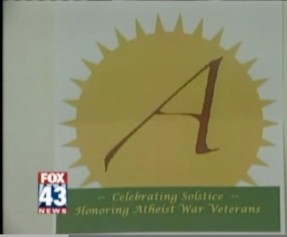Sometimes, I wish there was a god. Not because I want miracles or a deeper meaning to life. Not because I want to imagine that my family and friends that have died are still existing on another plane. No, sometimes I wish there was a god because I wish that there was a supernatural, higher-power being to seek absolution, forgiveness, from. Not that I have so many “sins” to be forgiven for. I do not feel guilt for fooling around with my boyfriend in high school, though we both moved on to marry others and by the definitions I grew up with, we both committed adultery (or something that brushed very close to it). I do not feel guilt for being a crappy mom. I’m a totally adequate mom and I am comfortable with that. I do not feel guilt because I have a crush on a man who is not my husband. I do not feel guilt for leaving the church, though it hurt my family and friends.
No, none of those things are what keep me up at night. No, during that interim period between wakefulness and sleep, when my brain flits from one thing to another, from thoughts about what I ate for dinner to what Jael should wear to school tomorrow, from thinking about my current knitting project for my cousin’s baby to her mother and from there to her grandmother, the guilt that keeps me awake is not the guilt of commandments broken or faith not had. No, no, no. The guilt is for an action that was taken because I had too much faith.
I believed in God. I believed that the Bible was true. I believed that God would fulfill his promises in the Bible. So when the Bible said that we could heal the sick in Jesus’s name, I believed that. When the Bible said that we would do even greater things than Jesus, I believed it. I believed that God would heal my aunt from brain cancer if I sacrificed, humbled myself and prayed over her. It was one of the hardest things I’ve ever done, as my family did not believe in the “gifts” of healing and whatnot. But I obeyed the commands I believed I had been given. I fasted and I prayed. I told my husband that I had to go. He joined with me in fasting and prayer. We prayed the entire drive to Marysville, Kansas. Cancer had already destroyed the woman I remembered but it did not deter us. She was unable to walk unaided, unable to speak, and who knows how much she understood. We knew that it would simply make God’s miracle that much more amazing. We knelt beside my aunt’s recliner, we read from the Word, we laid hands on her, we prayed for her, we annointed her head with oil, and finally, we commanded her to stand up.
I will never forget the look in her eyes as she tried to explain, with a body that no longer obeyed her commands, that she could not stand up. I will never forget the feeling of having a dying woman look guilty, as though she were a personal disappointment because she was unable to “faith” her way to a healing.
That is what keeps me up at night. That is what I wish I could ask forgiveness for. I wish that there were a source of ultimate good that could lay hands on my soul and apply a healing salve to the portion of me that committed that crime.
I am so sorry, Uncle Roy, for walking into your home and wasting one of your last days with your wife in such a disrespectful manner.
I am sorry, Grandma, that you had to bury a child after someone had read Bible verses to you that said God would heal her.
I am sorry, Dad, that I raised false hopes.
I am sorry, Debbie, that your mom died, despite what I read and said and prayed.
I am sorry, Kendra, Bobby, and Liz that your grandmother had to spend some of her last hours on earth with such an idiot.
I am sorry, Brycen, that you never got to meet your great-grandma.
I am sorry, Aunt Judy, that God isn’t real. I’m sorry that he wasn’t there to heal you. I don’t know if I caused you to doubt him or not but if I did, I am so incredibly sorry for casting doubt on your faith in your last days on earth. I am so sorry.
If I could take an eraser to one weekend of my life, that would be it. If I could rewind, delete, and continue on, those two days would be what I deleted. If I could apply bleach to my memory and destroy one event, this would be the one I bleached out of existence. But I can’t. And I will, most likely, continue to think of this until the day I, too, cease to live and I will continue to wish, in the dark of the night, when sleep eludes me, that there was a god to seek forgiveness from for the sin of believing in him too damn much.


